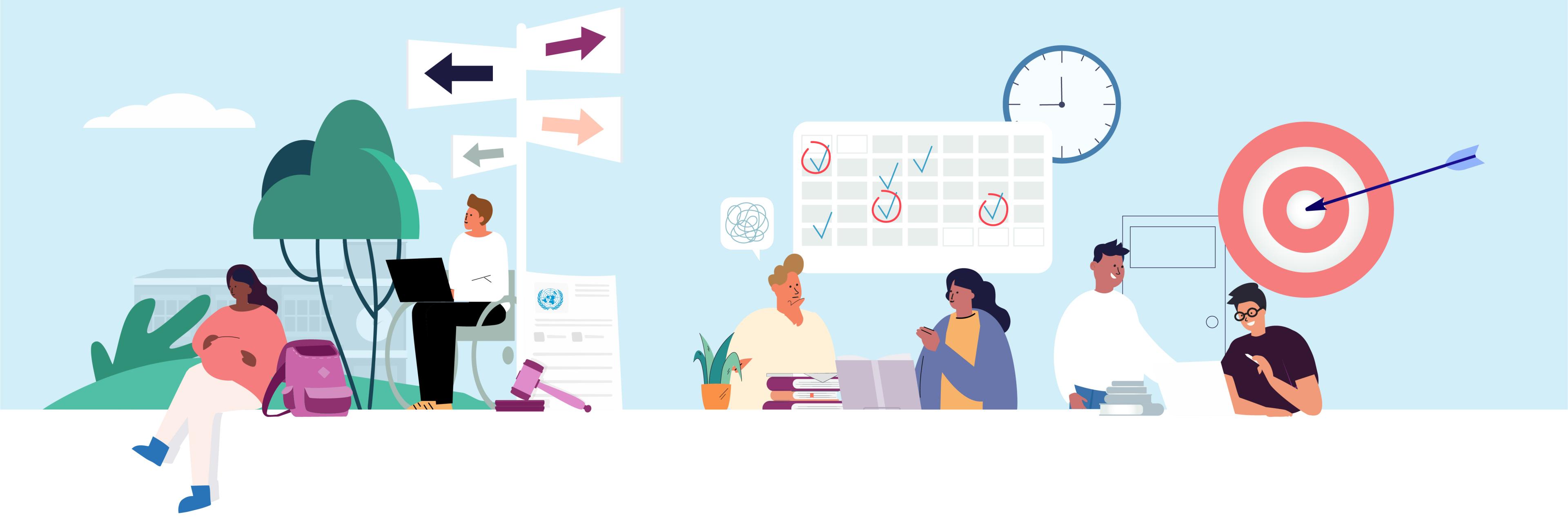
There are several trainings that may help you. For example, if you struggle with planning or organizing aspects of your studies, you could take a time management course. Or you could take a course in managing fear of failure if this is something you deal with when asked to perform a task. These kinds of training courses are sometimes offered by educational institutions. On this page, you will also find tips and examples you can use to get started yourself.
what you can do yourself
You may encounter various obstacles during your studies. Below are some options you can use to make your own progress.
Nationwide schemes
Educational institutions are not obligated to offer courses or other training options to students with an educational need. The Equal Treatment (Disability and Chronic Illness) Act (Wgbh/cz) does, however, require educational institutions to make adjustments in response to all reasonable requests. Such accommodations may take the form of courses and other kinds of training.
Schemes at your educational institution
- If you need a specific training or course, check with your educational institution.
- Some educational institutions may employ one or more student psychologists. See if they could help you. Check with your educational institution about the possibilities.
Below, we will provide examples of the courses and training options that are sometimes provided at educational institutions. Please note: these are just examples. In other words, it is possible that your educational institution will not offer these particular courses or that it will offer other courses not listed here. It is, of course, possible to ask someone at your school about the range of courses and training options available.
What can your educational institution do for you?
- Some educational institutions have one or more student psychologists on staff. You might see whether they can help you.
- Always contact your educational institution if you would like to discuss what training would suit your support needs. It is also a good idea to check your educational institution's website.
Tips
Classrooms and study spaces
- Permanent seat: choose a permanent, suitable and modified place to sit in the classroom.
- Tidy workstation: make sure you have a tidy place to work, both at home and on the campus.
- Study space: identify the best place for you to learn without being distracted. The libraries at research universities and universities of applied sciences often have designated quiet areas where you can study quietly.
Attending lectures, learning and taking notes, completing projects and assignments
- Content and form: ask about the content and form of the lectures and determine (in consultation with the lecturer) which classes you absolutely need to attend and which you could potentially skip.
- Discuss areas for attention that improve the communication for you, such as taking notes beforehand, visual support, clear and effective feedback and additional support from the lecturer.
- Study buddy: arrange for a study buddy, to whom you can turn with questions and with whom you can study.
- Mind Mapping: use the Mind Mapping technique to help you take notes or create a summary (you can do this on paper or with free software on the computer).
- Progress meetings: schedule progress meetings with your study adviser.
- Support with completing projects and assignments: ask your lecturer for extra support. Examples of this might involve extra instructions and feedback intervals.
- Improving presentation skills: take a training course on how to improve your presentation skills. Ask your study adviser for information on this topic.
- Work group meetings: use an online chat, Skype or email to communicate with your work group.
Practise your social skills
Regularly practise short "small talk" conversations, for example about small talk, also at unexpected moments. In everyday life, you can benefit greatly from being able to have simple conversations, even if they are not directly about something important.
General practitioners and/or insurers can often help as well
If you have a disability or obstacle that makes it more difficult for you to study, you can also ask for help from your GP or someone else who provides you with guidance in this area. Your healthcare insurance provider may cover this. Check with your insurer to find out.